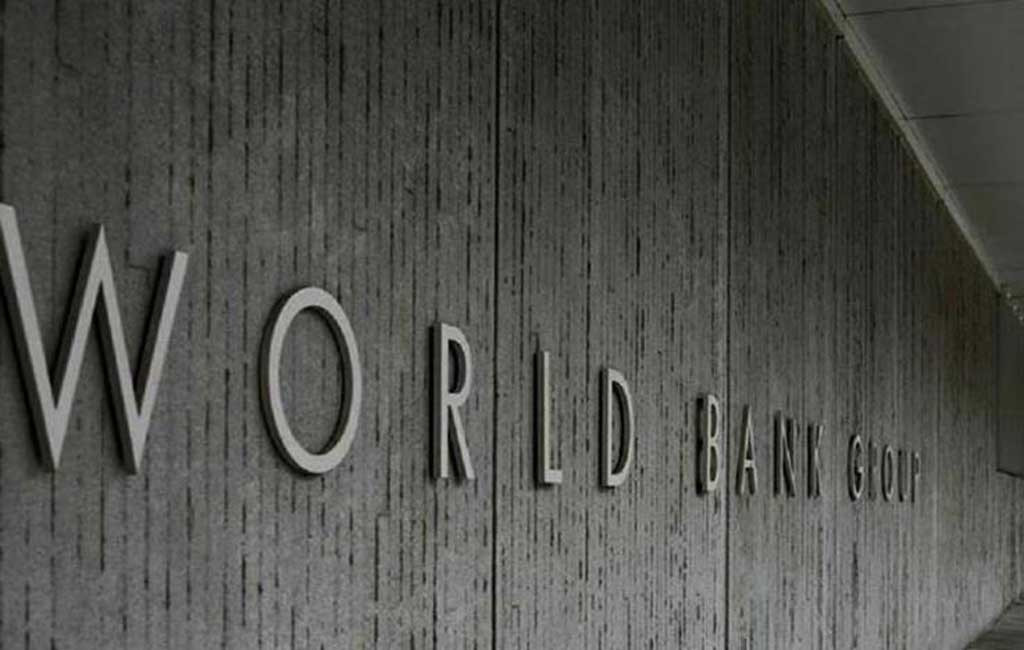Popular Reads
Top Results
Can't find what you're looking for?
View all search resultsPopular Reads
Top Results
Can't find what you're looking for?
View all search resultsIndonesia may lose market confidence due to mounting debts: World Bank
The government needs to show a credible path for the economy to unwind “exceptional measures” taken by the government to battle the outbreak, World Bank senior economist for Indonesia Ralph van Doorn said.
Change text size
Gift Premium Articles
to Anyone
T
he World Bank has called on the Indonesian government to formulate a sound fiscal strategy to “flatten the debt curve” and maintain financial market confidence as debt mounts amid the coronavirus outbreak.
Indonesia’s debt-to-gross domestic product ratio would rise to 37 percent this year, from 29.8 percent at the end of last year, driven by an increase in borrowings to cover for the widening budget deficit and to cope with the economic slowdown and rupiah exchange rate depreciation, said World Bank senior economist for Indonesia Ralph van Doorn.
“The government must [provide assurances over its] fiscal strategy to raise revenues back to at least the 2018 level to flatten the debt curve,” Van Doorn told an audience during a discussion on Wednesday, adding the country risked losing market confidence over its mounting debts.
“Indonesia must maintain its hard-earned market confidence, which can be lost very easily, as credit rating agencies have signaled concerns [about debts] in the medium term.”
The government needs to show a credible path for the economy to unwind “exceptional measures” taken by the government to battle the outbreak, he said. “It must reinstate the deficit ceiling and end Bank Indonesia’s partial financing of deficit” after the virus threat subsides.
Indonesia’s budget deficit is expected to widen to 6.27 percent of gross domestic product this year, more than double the initial ceiling of 3 percent, as President Joko “Jokowi” Widodo ramps up an economic recovery stimulus to counter the blow from the outbreak.
The government is rolling out a Rp 641.17 trillion (US$43 billion) economic recovery stimulus, bigger than previous allocations, to strengthen its social safety net programs and tax incentives, as well as preparing a Rp 149.29 trillion bailout for 12 state-owned firms, mostly as cash compensation and working capital investments, to reduce the impact of the virus crisis.
The World Bank now projected zero percent growth for the Indonesian economy under the baseline scenario, Van Doorn said. However, the economy may contract 3.5 percent under the worst-case scenario.
Finance Minister Sri Mulyani Indrawati said the widening budget deficit was warranted as government revenues may drop following an increase in tax incentives alongside weakening economic sectors.
However, the ministry will start charging 10 percent value-added tax (VAT) on imported digital goods and services, including video and music streaming subscriptions, starting July 1 in an attempt to boost state revenue.
“We will look at the potential income as right now we are currently having discussions with the digital companies to ensure smooth implementation,” the tax office’s revenue and compliance director, Yon Arsal, said on Wednesday.
The government had issued Rp 376.5 trillion worth of government bonds as of April and planned to issue another Rp 697.3 trillion starting in May until the end of this year, including yen-denominated bonds.
The Finance Ministry’s director general for financing and risk management, Luky Alfirman, estimated that the ministry would issue an additional Rp 175 trillion worth of bonds following a plan to revise the assumptions underpinning the 2020 budget.
The central bank has pledged to buy Rp 125 trillion worth of government bonds this year in a move to “share the burden” of the economic recovery, according to Bank Indonesia Governor Perry Warjiyo.










